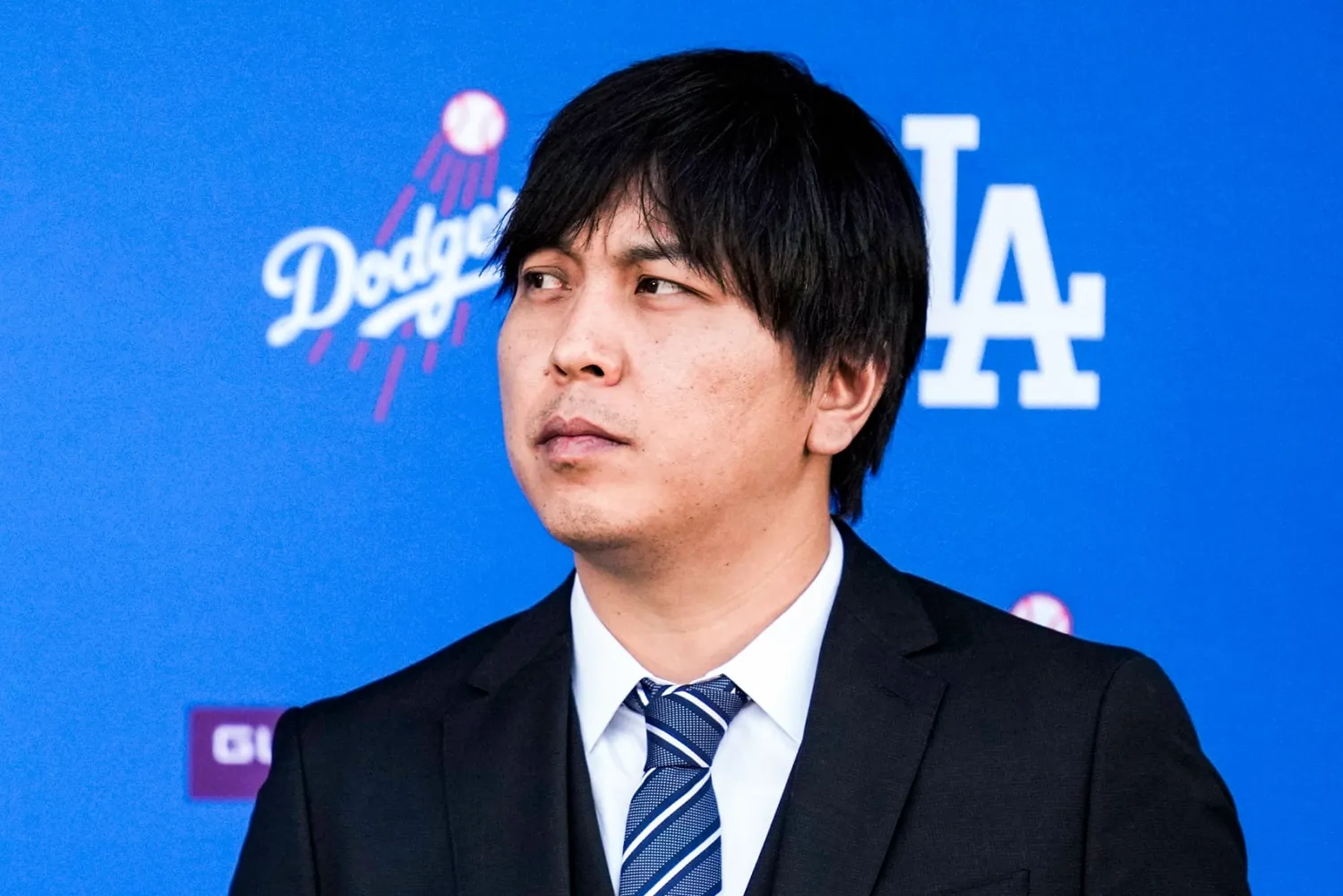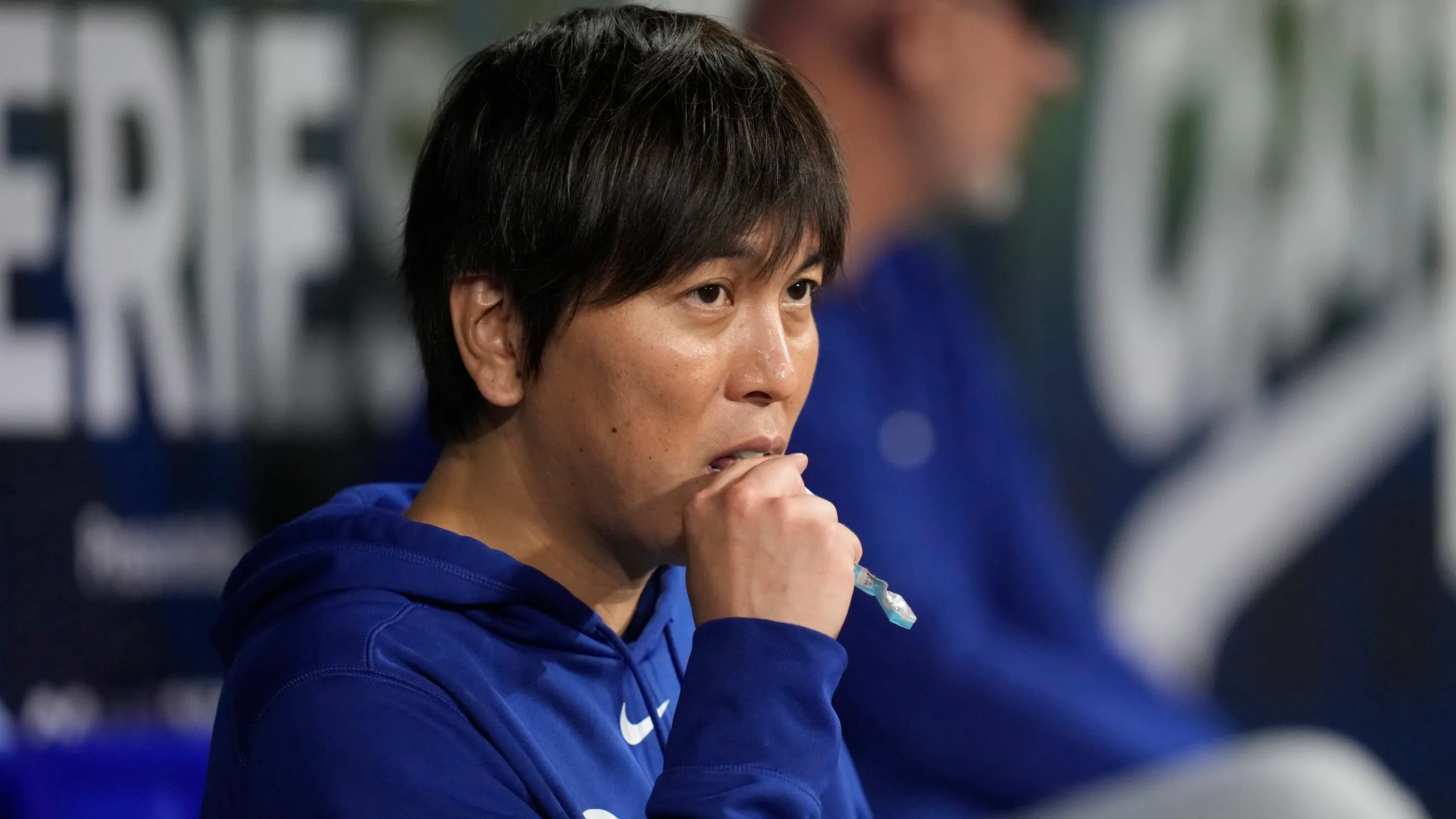Ippei Mizuhara, Former Interpreter for Shohei Ohtani, Sentenced to 57 Months in Prison After $17 Million Theft

The Case of Ippei Mizuhara
Ippei Mizuhara, the former interpreter of baseball star Shohei Ohtani, has been sentenced to 57 months in prison after being accused of stealing nearly $17 million from Ohtani’s account. This case has garnered significant public and media attention, not only due to the massive sum involved but also because of the close relationship between Mizuhara and Ohtani.
Mizuhara’s sentence will take effect on March 24 and will be followed by three years of supervised release after his time in prison. Additionally, he has been ordered to pay nearly $17 million in restitution to Ohtani, further underscoring the severity of the case.
Charges and Penalties
Mizuhara pleaded guilty to charges of bank fraud and tax fraud, which could have carried a maximum sentence of up to 33 years in prison. The prosecutors had recommended a 57-month sentence, which was ultimately granted. Meanwhile, Mizuhara’s defence team had requested a lighter sentence of only 18 months, highlighting the contrasting views on the severity of his crimes.
Details of the Criminal Act

According to the allegations, Mizuhara engaged in illegal gambling, placing up to 19,000 bets from 2021 to 2024, leading to a net loss of approximately $40.6 million. To cover these losses, he secretly withdrew funds from Ohtani’s MLB payroll account, executing a sophisticated and systematic fraud scheme. This highlights the extent of Mizuhara’s deception and the lengths he went to in order to maintain his gambling habits at the expense of Ohtani’s trust.
The Relationship Between Mizuhara and Ohtani
Mizuhara played a crucial role in Ohtani’s life since the Los Angeles Dodgers star arrived in the United States in 2018. As both an interpreter and a close friend, Mizuhara had a significant influence on Ohtani, not just in baseball but also in various aspects of his personal life. However, this trust was ultimately abused in a shocking betrayal, showcasing the vulnerability athletes face regarding their personal relationships.
Mizuhara’s Deceptive Strategies
To maintain access to Ohtani’s finances, Mizuhara engaged in multiple fraudulent activities. One of his key tactics was impersonating Ohtani when making phone calls to the bank, authorizing large wire transfers to his bookie. This demonstrates the calculated and deceptive nature of Mizuhara’s actions. The case has had severe consequences, not only for Mizuhara but also for Ohtani, who had placed immense trust in Mizuhara over the years.
Reaction from the Baseball Community
The case has drawn significant attention from the baseball community, particularly from players and fans. Many have expressed shock and disappointment over Mizuhara’s actions. The incident serves as a stark reminder of the importance of carefully selecting representatives and interpreters, especially in a highly competitive industry like professional baseball. This reaction emphasizes the need for vigilance in personal and professional relationships.
Lessons from the Case
The case of Ippei Mizuhara is not just a crime story—it also serves as a valuable lesson for athletes and stakeholders in the sports industry. It highlights the critical need for financial oversight and the necessity of implementing protective measures to prevent fraud. After serving his prison sentence, Mizuhara will face three years of supervised release, which will likely impact his ability to secure employment and reintegrate into society.
The Downfall of Promising Talent
Ippei Mizuhara was once regarded as a talented interpreter in the baseball world. However, his criminal actions have overshadowed his past successes. This is not only a major personal downfall for Mizuhara but also a disappointing and painful experience for Ohtani and those who once trusted him, marking a significant turning point in both their careers.

The Importance of Ethics in Sports
This case underscores the importance of ethics in sports. Athletes and those working alongside them must uphold the highest ethical standards to protect both their careers and personal well-being. This serves as a lesson not only for Ohtani but also for all young athletes in the industry, emphasizing the need for integrity and trustworthiness.
A Costly Lesson
Ultimately, this case is not just about crime—it is also a valuable lesson for the sports industry. Trust can be exploited anywhere, and athletes must be more cautious when choosing the people they rely on. Only with transparency and strong ethical values can the sports industry grow sustainably and benefit all its participants, ensuring that similar incidents do not occur in the future.







